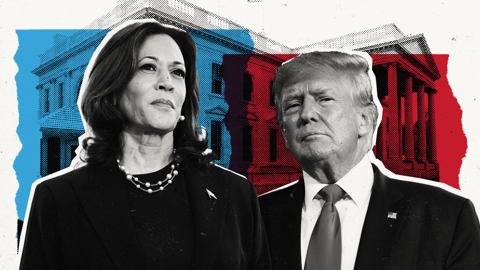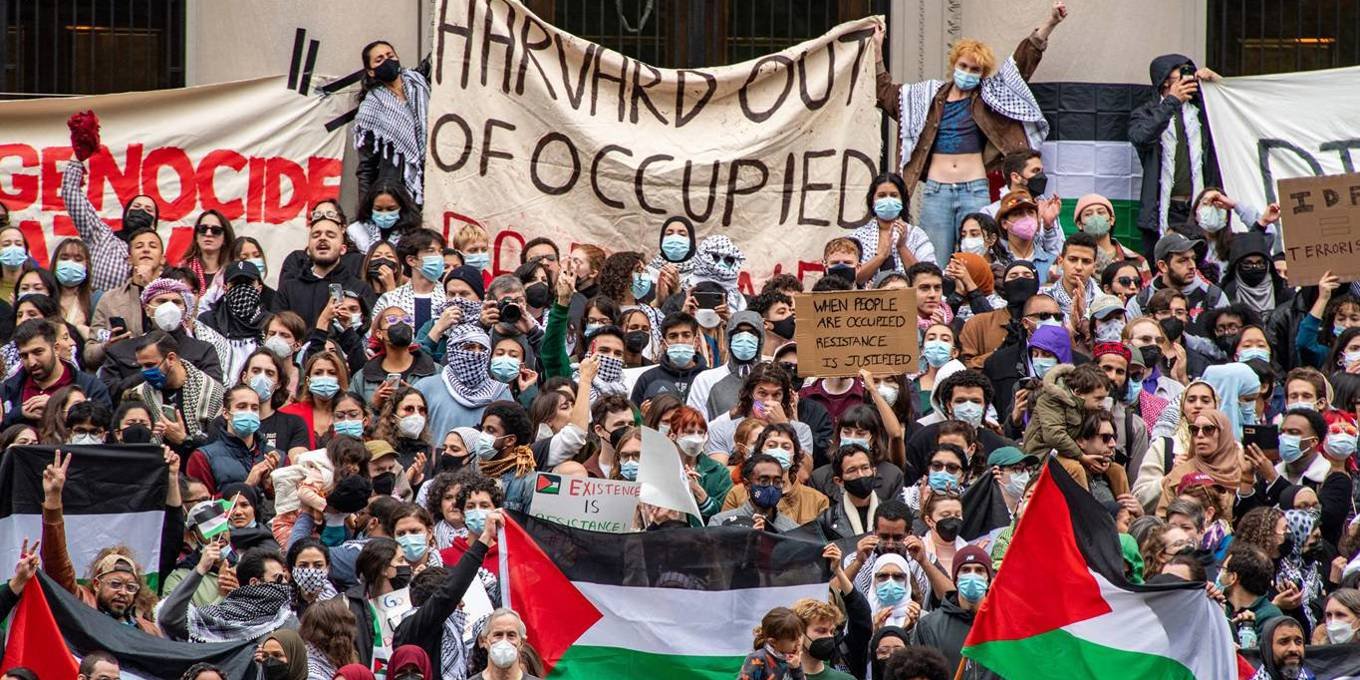The 1960s still has a lot to teach us about campus protests and the proper institutional role of universities. A good rule is that colleges and universities should hold their institutional fire for cases and causes that have a direct, significant impact on their core functions of teaching, research, and independent inquiry.
CAMBRIDGE – Although the war in Gaza has not ended, it has already had far-reaching effects on American universities. Following Hamas’s atrocious attacks on civilians, most campuses were initially sympathetic toward Israel. But as time passed and images from the war piled up, many young people began to protest what they saw as an excessive civilian death toll in Gaza. Campuses grew deeply divided as pro-Palestinian students demanded divestment from companies working with Israel, and as pro-Israel students argued that a hostile environment was threatening their safety and pursuit of an education.
University presidents and governing boards have struggled to find the right response, and many top administrators have resigned, including at my own university, following congressional hearings on the issue this spring. According to Harvard’s new president, the university will no longer issue official statements about public matters unless they directly threaten academic freedom or affect the institution’s core functions of teaching and research. Is this the right answer?
The policy is new, but the problem is not. Things were even worse during the Vietnam War. While this year’s tent encampments and protests over the Gaza war have often violated Harvard’s long-standing statement of rights and responsibilities regarding the time, place, and manner of protests, the current protests have been relatively tame compared to the 1960s.
As I recall in my memoir, A Life in the American Century, my office in the 1960s was in the Center for International Affairs. Our building was occupied multiple times and subjected to a bombing and an attack that sent one staff member to the hospital. To quote a radical Weather Underground pamphlet that I kept from November 1969: “The people who run the CFIA are hired killers. They write reports for the government on how to keep a few Americans rich and fat. Professors who help the government are pigs. Isn’t there a pig you’d like to get?” Our assailants bragged about breaking into buildings, kicking the “swine” down the stairs, and shattering windows. Today’s obstructive encampments come nowhere close to this.
Violence is not the only problem. Free speech is essential to a university, and protests that respect the appropriate limits on time, place, and manner should be both expected and tolerated. But protests should be conducted by individuals or groups; they should not invoke the institution.
The role of the university was already being disputed in the 1960s, and not just by students. At a dinner with a small number of faculty colleagues, I argued that our democratic societies would be poorer if academics debased their search for truth, and if universities became just another pressure group. Some of my colleagues disagreed, arguing that the institution was obliged to dissociate itself publicly from immoral government policies like the Vietnam War. In another prelude to the current moment, they pointed out that university endowments were supporting companies that produced war materiel.

Go beyond the headlines with PS – and save 30%
As the US presidential election nears, stay informed with Project Syndicate – your go-to source of expert insight and in-depth analysis of the issues, forces, and trends shaping the vote. Subscribe now and save 30% on a new Digital subscription.
Protesters later argued for divestment with respect to other issues, such as apartheid in South Africa, climate change, and now Israel. When economists point out that such actions have little economic effect (because someone else quickly buys the divested stock), advocates reply that what matters is the political statement of naming and shaming. Divestment, they believe, is an institutional statement that has a bigger impact than any effort driven by individual members of the university community.
The problem is that the costs to the university are much higher than the benefits gained for the cause being advocated. Far stronger political pressure groups are likely to outweigh the political impact of the divesting universities, which in turn will incur costs not only to their academic freedom and independence, but also to their internal community. As a recent report from Harvard’s “Institutional Voice” working group argues, “because few, if any, world events can be entirely isolated from conflicting viewpoints, issuing official empathy statements runs the risk of alienating some members of the community by expressing implicit solidarity with others.” Accordingly, Harvard recently rejected demands that it divest from firms with business in Israel.
Self-restraint on political statements is only part of the solution. Equally important is the enforcement of existing rules. For a university administration to rely on the police is both tactically and morally problematic. This has been a point of tension on many campuses over the past year. Harvard erred in 1969 when it called in the state police (who overreacted). The enduring lesson for today is that such measures should be a last resort.
Nonetheless, if university rules governing the time, place, and manner of free speech (including protest) are not enforced, the institution can no longer uphold its core purpose of teaching and research. Moreover, impunity for rule-breakers endangers reasoned exchange of opposing views and reduces discourse to a contest of who can push the hardest. If protesters reply that they are deliberately breaking the rules to dramatize their cause and amplify their message, they should remember Martin Luther King, Jr.’s point that civil disobedience is morally compelling only if you are willing to pay the penalty. That is also part of education.
Of course, universities cannot be completely neutral on all political issues. But they should reserve their institutional fire for cases that have a direct and significant impact on their core functions of teaching, research, and independent inquiry. In the current situation, academic freedom means that both pro-Israel and pro-Palestine voices must be heard, and that universities must stand up to browbeating by congressional committees and donors who threaten to withdraw financial support. The 1960s has a lot to teach us about the importance of protest and its limits, as well as the proper institutional role of universities. Let us hope we do better in the 2020s.










